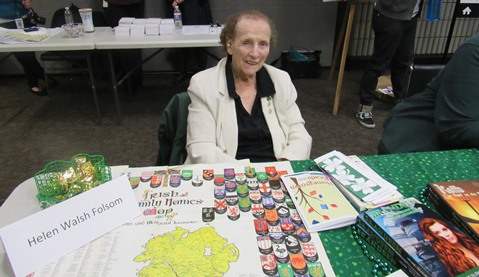by Madeline Fox, Kansas News Service
Descriptions of an underfunded, under-resourced foster care system short on child placement options sounded familiar to Kansas lawmakers and child welfare advocates at a task force meeting this week.
But the events described Tuesday actually played out 30 years earlier, when a 1989 class-action lawsuit — alleging that the state’s foster care system violated the rights of Kansas children — raised issues that eventually led to the current privatized system.
Rochelle Chronister, former secretary of the Department of Social and Rehabilitation Services (now the Department for Children and Families), said she believes privatization of the foster care system in the late 1990s made sense although it was a tumultuous process.
“I hope none of my colleagues are going to come up here and tell you it was a smooth transition, because it wasn’t,” Chronister said. “Oh my, any day I wasn’t on the front page of the Topeka Capital-Journal was a good day.”
Lawmakers and advocates are revisiting that privatization decision, and other changes to Kansas foster care in the last 20 years, as part of a multiyear review of child welfare that the Legislature approved earlier this year.
Tuesday’s meeting offered a grim view for task force members, as former SRS administrators and others described the problems they hoped to fix with privatization: understaffing and inadequate funding, the same issues that have been highlighted in recent cases when children died in foster care or ran away from foster care placements.
“It’s the same story over and over and over,” said Dave Ranney, a court-appointed special advocate for children in the foster care system who was a reporter for the Wichita Eagle and the Lawrence Journal-World during the privatization process.
However, former SRS commissioner Teresa Markowitz said she has noticed an improvement in the high percentage of children placed with family members now.
“Here’s the good news for people who are only interested in money, and the good news for people that are only interested in good outcomes for kids,” said Markowitz, now vice president of the Center for Systems Innovation at the Annie E. Casey Foundation, a national child welfare organization. “Keeping a kid with a family member is most cost-effective, and it has the best outcomes.”
Markowitz said placements with relatives are generally far less disruptive for children, who don’t have to adjust to unfamiliar adults and are often able to stay within the same community.
So far this fiscal year, nearly 33 percent of Kansas children in out-of-home care have been placed with relatives.
Markowitz was shocked to learn, though, that relatives taking care of Kansas foster kids were paid only $3 per day on average. Licensed foster care parents who care for non-relative children are eligible for a higher reimbursement rate of close to $20 per day for kids who don’t require specialized care.
Relatives who do go through formal licensing, including a 10-week, 30-hour training course, are eligible for the higher reimbursement rate. But Markowitz said paying relatives more, even without the formal training, would still save the state money down the road, as less-disruptive placements with relatives help prevent children from needing more social services later in life.
Placements with family members and non-relatives such as teachers, coaches or other adults who have a relationship with the child are among the fixes the task force has examined during its review of the child welfare system.
The task force will submit final recommendations to the Legislature in January 2019.
Madeline Fox is a reporter for the Kansas News Service, a collaboration of KCUR, Kansas Public Radio, KMUW and High Plains Public Radio covering health, education and politics. You can reach her on Twitter @maddycfox. Kansas News Service stories and photos may be republished at no cost with proper attribution and a link back to kcur.org.
See more at http://kcur.org/post/kansas-task-force-hears-some-issues-foster-care-system-aren-t-new.


